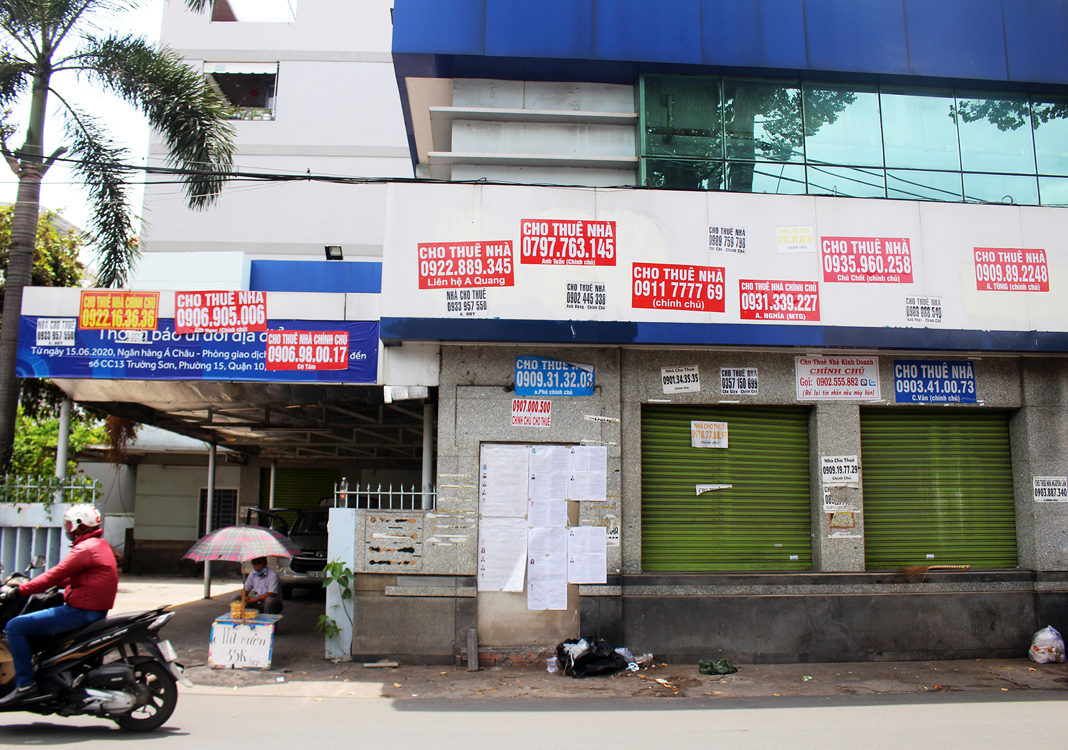While having to impose social distancing or lockdowns, some countries have implemented an effective measure to support the corporate sector: partial unemployment. This undertaking has not been discussed by Vietnamese authorities.
Covid-19 has dragged on in Vietnam, urging local governments to enforce social distancing and lockdowns, which cause severe impacts on both the people and enterprises. The central Government is therefore considering a second aid package to be in place soon. Meanwhile, the Ministry of Planning and Investment has also made several suggestions in its latest report on the corporate sector in 2020 and the first five months of this year. The author reckons that the following useful measure being implemented in some countries during social distancing is worth being pondered.
Partial unemployment
Partial unemployment is a policy which enables enterprises to receive government support if their employees cannot go to work or have to be at work for a duration shorter than that agreed in labor contracts. In the case of Covid-19, this situation arises when orders placed at businesses drop unexpectedly or compulsory healthcare regulations require social distancing which greatly reduces the number of workers present at work, urges the work force to work from home, or forces workers who are parents to stay home to take care of their children as schools have to be closed.
The ultimate goal of the partial unemployment policy is to retain jobs and secure income for workers. Then, how does this policy work in reality?
If a business is in difficulty, one of the first things to think about is to reduce the work force. However, this measure can be employed at considerable expenses, from compensation for workers to new recruitment fees once the economy is back to normal again. It is this reason that some governments have resorted to the partial unemployment policy to lend a hand to businesses so that the latter can pay salaries to employees who in turn can retain their jobs.
This aid by the Government has to be shared by both employees and employers. Say, the Government of France has applied this measure since the outbreak of the Covid-19 pandemic. An employee who is partially unemployed receives 84% of his or her net salary and the business in question is supported in accordance with its losses and the sector it is in. Some may receive 100% while others shoulder 15% of the employee cost.
On average, the payroll cost paid by an enterprise in France is double the salaries paid to employees. If a worker receives a monthly salary of 2,000 euro, then the enterprise’s payroll cost is about 4,000 euro per month. And if this business is to pay for 15% of the employee cost, it has to spend 4,000 x 15% = 600 euro. That means the Government will pay salaries and other compulsory expenses, such as social insurance, on behalf of the enterprise.
The level of support and its criteria are subject to change from one month to another dependent on the situation of the pandemic and the national economy. The French Government’s current regulations will be valid until September of this year.
In this sense, when subject to the partial unemployment policy, employers are helped with a great part of their payroll burden while employees can still earn part of the income for their living. Both are crucial to the economy because the spending flow is not interrupted.

Can the policy be carried out in Vietnam?
The social distancing due to Covid-19 in Vietnam is enforced only in some localities. Therefore, if the partial unemployment policy is introduced, it does not mean support will be offered to all businesses across the country. Furthermore, as businesses work in extensive ranges of sectors, the impacts on them are different and hence the level of support given to them.
The Vietnamese Government has taken some measures—such as restructuring of loans, preferential interest rates, and exemption or reduction of some kinds of taxes—to support the corporate sector. However, the immediate difficulty caused by the intensifying pandemic requires direct support for employees and indirect support for employers. Few businesses would want to lay off their work force, and with aid in payroll from the government, they may continue to pay salaries to workers and thus retain them.
According to the support plans which have been announced, in comparison with many other countries, the budget to be used for these plans to Vietnam’s GDP (Gross Domestic Product) is still very modest. When it comes to the sources of support, Vietnam may have many if they can be fully exploited.

Some latest analyses indicate that it is very tough for the Vietnamese Government to carry out its double goal of economic development and safety from the pandemic. To make the fight against Covid-19 effective, social distancing measures have to be imposed extensively and direct support to the people must be carried out using cash. If cash is not available and minimum social distancing is adopted to sustain part of the economic growth, Vietnam has to accept a higher rate of infections and even a higher death toll.
In a modern society and a consumer society, employment and workers’ income are essential for the smooth operation of the economy. No income means no consumption, including consumer credit. Meanwhile, a demand crisis will give rise to a supply crisis. This is the case in some developed countries. During the time of the pandemic, workers in one industry quit their jobs or switch to others. When the economy was back to normal again, businesses in the industry could not find enough personnel although they had raised salaries. In the short term, prices will hike because supply fails to meet demand. If prices in one economic sector jump, they will send the spillover effect to other industries, which will soon become a headache for policymakers.
By Dr. Vo Dinh Tri(*)
(*)University of Economics HCMC, IPAG Business School Paris, AVSE Global











